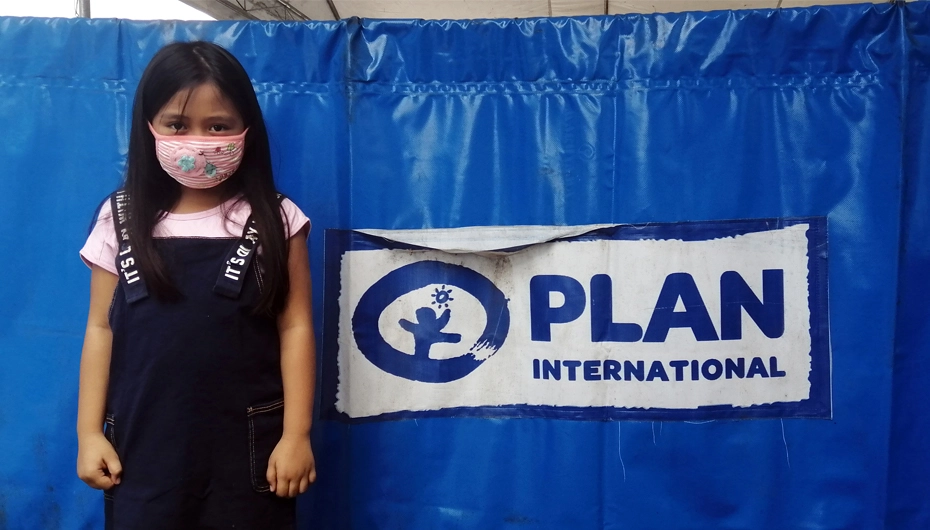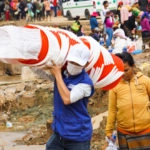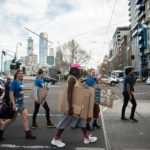Media Centre - Media release - 4 November 2020
Plan International deploys teams in Philippines to areas worst hit by Super Typhoon Goni

Child rights and humanitarian organisation Plan International has deployed teams to assess the extent of damage and immediate needs of families in areas hardest hit by Super Typhoon Goni, known locally as Rolly.
Two Rapid Needs Assessment (RNA) teams are set to assess the damage caused by the super typhoon and priority needs of affected communities in the provinces of Albay (first and third districts), Camarines Sur (coastal areas in fourth district), and Catanduanes. The assessment aims to look into the urgent needs and protection of the affected communities and sectors especially women, girls, and boys who are most vulnerable during disasters, as well as displaced families facing increased risks of getting exposed to COVID-19.
According to the UN Office for the Coordination of Humanitarian Affairs (OCHA), 68.7 million people are affected, with 24.3 million in worst-hit areas. Of the 2.3 million vulnerable people in the most devastated areas, around 724,000 are children.
“When a disaster strikes, children are among the most vulnerable and at risk,”- Ana Maria Locsin, Country Director of Plan International Philippines.
“With the country battling a pandemic that’s far from being over, these vulnerabilities and risks are further magnified. This is even more reason to prioritize their immediate and unique needs in the response.
“We must also pay special attention to displaced families who face greater risks of getting infected from COVID-19, among other diseases.”
In coordination with local governments, the RNA teams will help identify the appropriate support and assistance needed by affected children and their families, specifically in terms of rebuilding homes, livelihoods, access to education, and psychosocial support as they recover.
The teams are also working closely with other humanitarian and civil society organizations to ensure an inclusive approach in the assessment and in identifying the next courses of action.
“We have prepositioned and are currently preparing life-saving kits for distribution to affected families. It remains our main duty to ensure they have access to safe shelter, clean water, sanitation and hygiene, including the sanitary needs of women and adolescent girls,” added Locsin.
Super Typhoon Goni, which entered the Philippine Area of Responsibility (PAR) on October 29, lashed parts of Luzon, specifically Northern Luzon, Central Luzon, Southern Luzon and Bicol Region, before exiting PAR on November 3.
Considered the world’s strongest typhoon in 2020, Super Typhoon Goni left a huge trail of devastation in the Bicol region, burying a village in mud and rock, shutting down communication lines, and leaving tens of thousands in evacuation centers in the face of a pandemic.
According to government agencies, the typhoon’s destructive winds and torrential rains led to no less than 20 casualties, and nearly 6 billion pesos (~€106 million) in damage to infrastructure and 2 billion pesos (~€353 million) in damage to agriculture.
Plan International has also activated a team in Manila to plan and design the implementation of an inclusive and gender-transformative Typhoon Goni Response.
Editor’s note:
Plan International has been working in the Philippines since 1961 and has played important roles in responding to previous disasters, including Typhoon Haiyan and the Nepal Earthquakes. In the Philippines, we work in over 400 communities and are supporting 36,000 sponsored children in the provinces of Occidental Mindoro, Northern Samar, Eastern Samar, Western Samar, and Central Mindanao.
Media contacts


